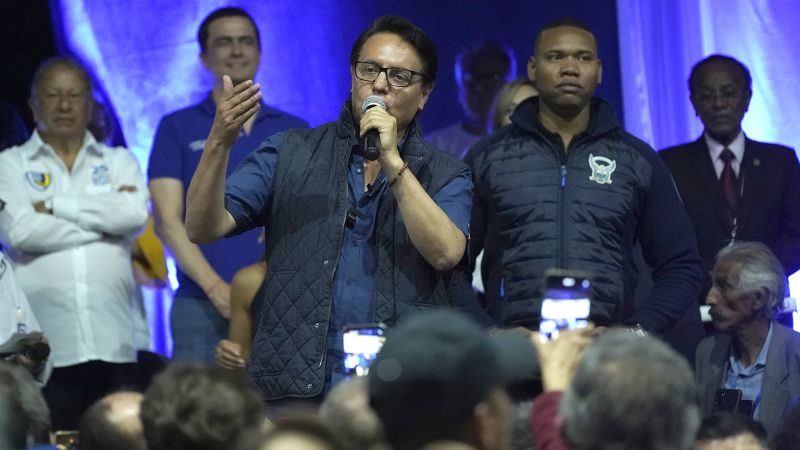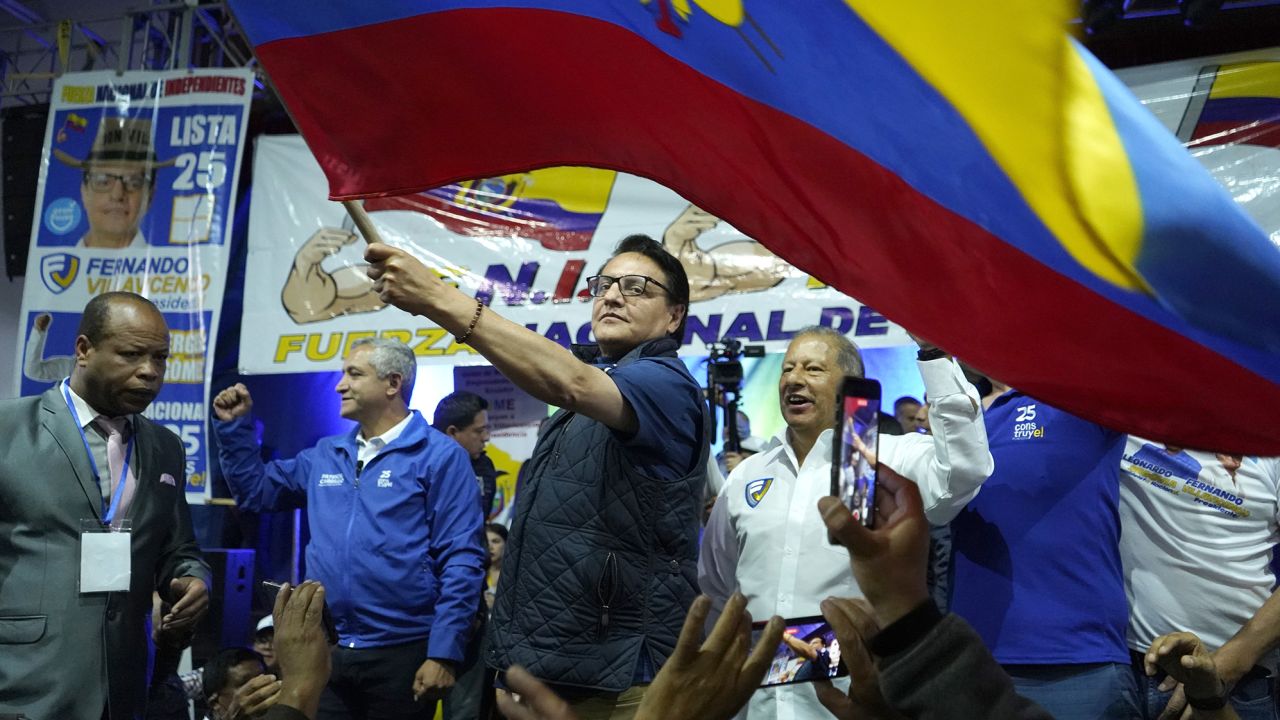


CNN —
Ecuadorian presidential candidate Fernando Villavicencio, shot dead on the campaign trail on Wednesday, was known as a tireless anti-corruption campaigner and investigative journalist.
A 59-year-old lawmaker in the National Assembly, he had been outspoken about corruption and the violence caused by drug trafficking in the country, telling CNN En Español in May that Ecuador had become a “narco state” as he proposed to lead a fight against what he called the “political mafia.”
These declarations, his previous work and future political promises made him many powerful enemies. Villavicencio previously said that he had received death threats from crime groups.
Villavicencio’s campaign promised a crackdown on crime and corruption amid a deadly escalation of violence that has gripped Ecuador in recent years.
However, he has long been known for his anti-corruption efforts.
Aged just 18 he started a newspaper called Prensa Obrera (Workers Press), and he went on to work for the EP Petroecuador state oil company.

Later, he would uncover corruption scandals in Ecuador’s booming oil industry, and also pushed for an investigation into an incident in which the army killed at least five people while freeing then President Rafael Correa from a hostage situation in 2010.
Correa filed a defamation lawsuit against Villavicencio, and he was later convicted to 18 months in prison as a result.
Villavicencio went on the run to avoid detention, and gave an interview to the Committee to Protect Journalists (CPJ) in 2014.
“The president wants me to get down on my knees and apologize,” he told the CPJ. “But I will never do that.”
Villavicencio later claimed asylum in Peru citing “political persecution” from the Correa government, according to Peruvian state broadcaster TV Peru.
